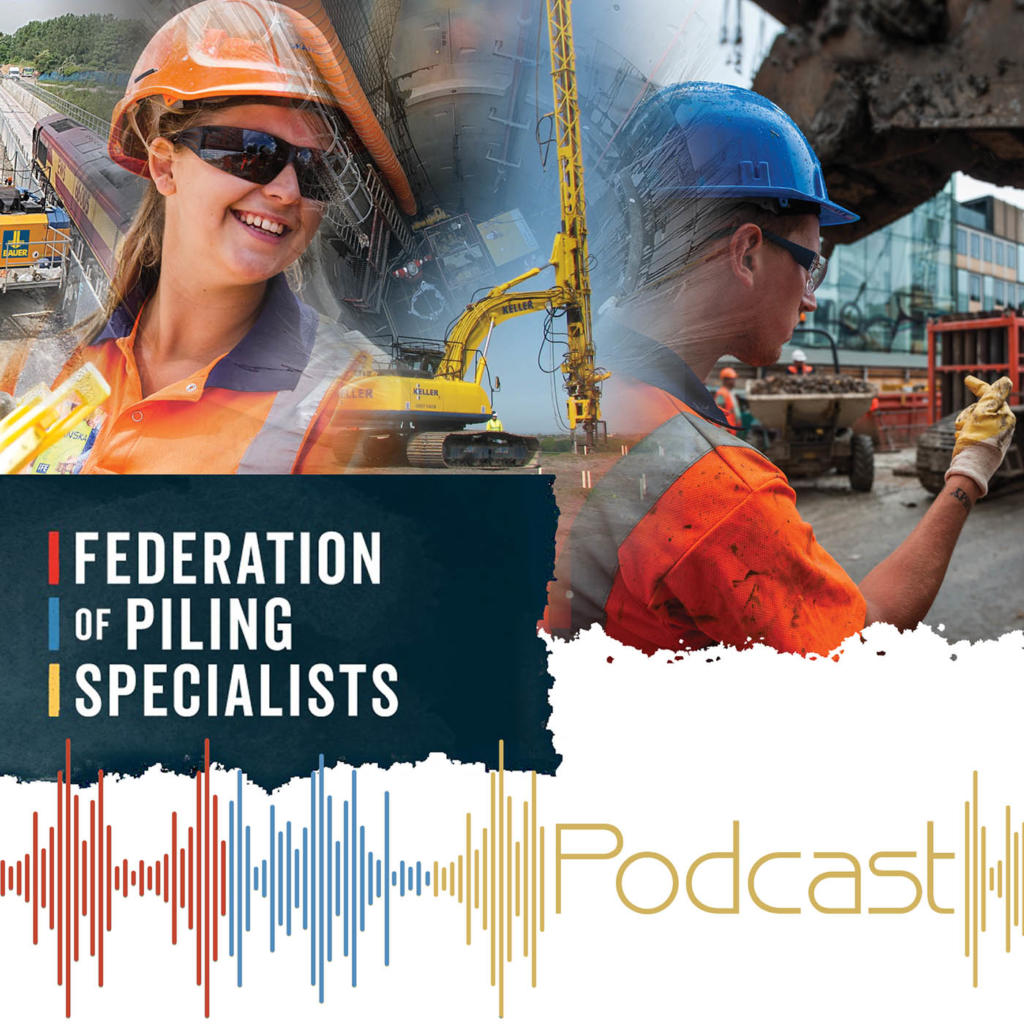
The Federation of Piling Specialists’ (FPS) first podcast, sponsored by Casagrande UK, is now live on Spotify for listening (it will be available on iTunes and the FPS website in the near future – as will all future podcasts).
This inaugural podcast features an interview with geotechnical legend and Director at Arup, Tim Chapman, who not only muses about his career, life in lockdown – the things we can learn – but also sustainability, of which he is a strong advocate. Despite considering law, journalism and planning initially as careers, Tim speaks about how the lure of getting his hands dirty won out in the end and he settled on geotechnics and a degree in Civil Engineering.
The increasing role of technology over his career is a constant theme throughout the podcast, and whilst reflecting on life without ‘mobiles’, he speaks at length about technology, though having many benefits, has failed often to bring any great productivity gains. Tim considers how the efficiencies of computers and communications is offset by the extra process work now involved and he talks about how much of it is worthwhile and where improvements could be made. Of course Tim talks positively of the impact safety has had on the industry – it being of paramount importance, but other areas of process are now more about ensuring ‘we are doing the right thing, rather than actually doing the right thing to a specific circumstance.
Tim also speaks at length about the ‘Re-Use of Foundations for Urban Site’ document, and specifically why it has not been as prominent in recent years despite many lessons to be learnt from it – keeping good records being just one of them, so they can be much more economically used at a later date.
The whole issue of sustainability is discussed, its creep in to piling and how it will eventually spread throughout the entire supply chain for the good of everyone. Tim’s involvement on low-carbon projects is also discussed, with Tim talking about how, whilst it is easy to put a price on carbon, it misjudges the calculation and worse how climate change could change all this anyway. Investing wisely is possibly more important, with Tim warning about the focus on capital carbon, preferring we look to embodied carbon and its impact on society; really good “green” piles for a really bad project being worse than bad piles of a really “green” project. Getting everyone together and on the same page will be key.
Tim’s shift to infrastructure is discussed and the interesting perspective it gave him, such as the whys behind a project, which is typically to benefit society. ‘Outcomes’ are obviously his interest and how they can be achieved differently and that the wider picture is lost when we focus simply on producing piles.
Project 13, and Tim’s involvement is discussed, specifically how the initiative hopes to improve things such as productivity at an industry level. Digital being one, BIM another, but still so much more that can be done, and Tim talks about how Project 13 is looking to the softer side of things and how we can engage the value chain. He also highlights his concerns, as well as the benefits the initiative might bring.
Of course, HS2 was discussed, and Tim talks about recruitment, planning and the many changes that HS2 may bring to working. Apart from his support of the project, from a low-carbon perspective, Tim talks about how it may get the attention of the best of the sector and ultimately the gains it will bring to the wider economy. How HS2 could help drive recruitment to the sector too, from diversity and on to the wider appeal of the sector is discussed.
The next podcast is scheduled for June, but to listen to this podcast now visit:
https://open.spotify.com/show/0zkhDVq89CWfQNRr6HD4SY